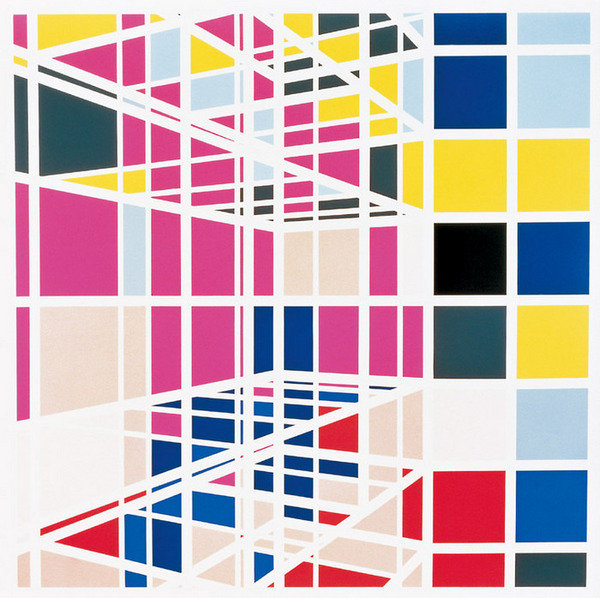Tracing the Grid
dal 3/5/2012 al 6/10/2012
Segnalato da
Carl Andre
Frank Badur
Horst Bartnig
Thomas Bayrle
William Betts
Enrico Castellani
Michiel Ceulers
Chuck Close
Gianni Colombo
Dag Przybilla DAG
Hanne Darboven
Gunther Forg
Katharina Gaenssler
Karl Otto Gotz
Eva Grubinger
Raymond Hains
Mona Hatoum
Katharina Hinsberg
Jürgen Klauke
Michael Klier
Attila Kovacs
Christina Kubisch
Sol LeWitt
Roy Lichtenstein
Max H. Mahlmann
Agnes Martin
Pia Maria Martin
Gerold Miller
Manfred Mohr
François Morellet
Sarah Morris
Carsten Nicolai
Chris Oakley
Sigmar Polke
Gerhard Richter
Peter Roehr
Fiene Scharp
Astrid Schindler
Jan J. Schoonhoven
Tina Schulz
Tim Stapel
Esther Stocker
Günther Uecker
Timm Ullrichs
Reinhard Voigt
Simone Westerwinter
Christopher Wool
Annett Zinsmeister
Heimo Zobernig
Beat Zoderer
3/5/2012
Tracing the Grid
Kunstmuseum Stuttgart, Stuttgart
The Grid in Art after 1945. Examples from around fifty artists, divided in 2 main trends: in concrete and constructivist art, the grid is appreciated for its formal severity and as a principle of repetition. Parallel to this, artists such as Sigmar Polke and Roy Lichtenstein adopted the grid as a "social model".

Like no other structure, the grid defines art of the twentieth and twenty-first centuries. This has been extensively researched in relation to the avant-garde, Piet Mondrian, and the Bauhaus movement; on the other hand, the significance of the grid in art since 1945 has never before been represented in an overview.
The exhibition fills this gap and illuminates the importance of the grid in art, presenting examples from around fifty artists. Here we can see two main trends: in concrete and constructivist art, the grid is appreciated for its formal severity and as a principle of repetition. Parallel to this, artists such as Sigmar Polke and Roy Lichtenstein adopted the grid as a social model forming the basis for the media world, architecture, town planning, or data acquisition. Today many young artists such as Esther Stocker, Sarah Morris, Michiel Ceulers, and Tim Stapel no longer distinguish between these two approaches, but are fascinated by the immense creative potential of the grid structure.
Artists
Carl Andre, Frank Badur, Horst Bartnig, Thomas Bayrle, William Betts, Enrico Castellani , Michiel Ceulers, Chuck Close, Gianni Colombo, Dag Przybilla DAG, Hanne Darboven, Günther Förg, Katharina Gaenssler, Karl Otto Götz, Eva Grubinger, Raymond Hains, Mona Hatoum, Katharina Hinsberg, Jürgen Klauke, Michael Klier, Attila Kovacs, Christina Kubisch, Sol LeWitt, Roy Lichtenstein, Max H. Mahlmann, Agnes Martin, Pia Maria Martin, Gerold Miller, Manfred Mohr, François Morellet, Sarah Morris, Carsten Nicolai, Chris Oakley, Sigmar Polke, Gerhard Richter, Peter Roehr, Fiene Scharp, Astrid Schindler, Jan J. Schoonhoven, Tina Schulz, Tim Stapel, Esther Stocker, Günther Uecker, Timm Ullrichs, Reinhard Voigt, Simone Westerwinter, Christopher Wool, Annett Zinsmeister, Heimo Zobernig, Beat Zoderer
Funded by the German Federal Cultural Foundation
Image: Sarah Morris
Dulles (Capital), 2001
Daimler Kunst Sammlung Stuttgart/Berlin
© Morris
Communication and Marketing: Dr. Eva Klingenstein (Head of Communication and Marketing) eva.klingenstein@kunstmuseum-stuttgart.de
Opening of the exhibition Friday, 4 May, 7 p.m.
Kunstmuseum Stuttgart
Kleiner Schlossplatz 1 - 70173 Stuttgart Germany
Opening hours: Tues - Sun, 10 a.m. - 6 p.m. Wed + Fri, 10 a.m. - 9 p.m. Mon closed
Admission: Collection (including exhibitions in the collection area) regular price: 5 € reduced: 3.50 € family: 11 €



